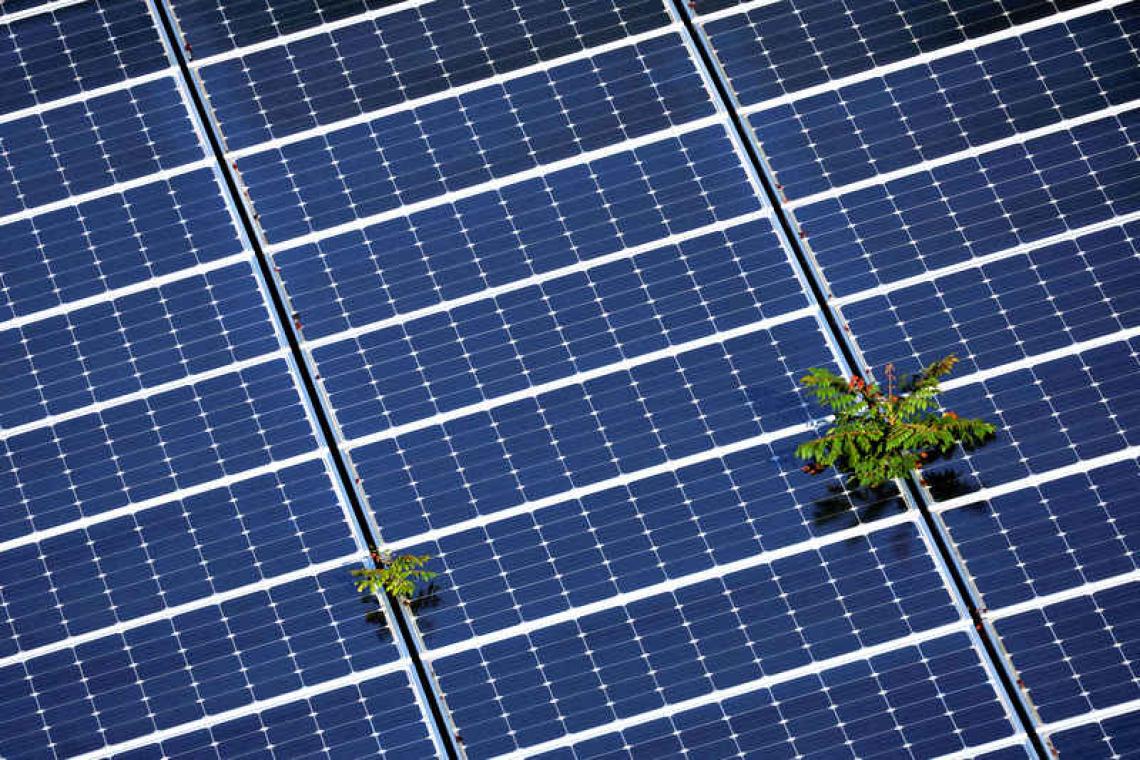LONDON--U.S. energy officials are reassessing the risk posed by Chinese-made devices that play a critical role in renewable energy infrastructure after unexplained communication equipment was found inside some of them, two people familiar with the matter said.
Power inverters, which are predominantly produced in China, are used throughout the world to connect solar panels and wind turbines to electricity grids. They are also found in batteries, heat pumps and electric vehicle chargers.While inverters are built to allow remote access for updates and maintenance, the utility companies that use them typically install firewalls to prevent direct communication back to China.
However, rogue communication devices not listed in product documents have been found in some Chinese solar power inverters by U.S experts who strip down equipment hooked up to grids to check for security issues, the two people said.
Over the past nine months, undocumented communication devices, including cellular radios, have also been found in some batteries from multiple Chinese suppliers, one of them said.Reuters was unable to determine how many solar power inverters and batteries they have looked at.
The rogue components provide additional, undocumented communication channels that could allow firewalls to be circumvented remotely, with potentially catastrophic consequences, the two people said.Both declined to be named because they did not have permission to speak to the media.
"We know that China believes there is value in placing at least some elements of our core infrastructure at risk of destruction or disruption," said Mike Rogers, a former director of the U.S. National Security Agency. "I think that the Chinese are, in part, hoping that the widespread use of inverters limits the options that the West has to deal with the security issue."
A spokesperson for the Chinese embassy in Washington said: "We oppose the generalisation of the concept of national security, distorting and smearing China's infrastructure achievements."
Using the rogue communication devices to skirt firewalls and switch off inverters remotely, or change their settings, could destabilise power grids, damage energy infrastructure, and trigger widespread blackouts, experts said."That effectively means there is a built-in way to physically destroy the grid," one of the people said.
The two people declined to name the Chinese manufacturers of the inverters and batteries with extra communication devices, nor say how many they had found in total.The existence of the rogue devices has not previously been reported. The U.S. government has not publicly acknowledged the discoveries.
Asked for comment, the U.S. Department of Energy (DOE) said it continually assesses risk associated with emerging technologies and that there were significant challenges with manufacturers disclosing and documenting functionalities."While this functionality may not have malicious intent, it is critical for those procuring to have a full understanding of the capabilities of the products received," a spokesperson said.
Work is ongoing to address any gaps in disclosures through "Software Bill of Materials" - or inventories of all the components that make up a software application - and other contractual requirements, the spokesperson said.
As U.S.-China tensions escalate, the U.S. and others are reassessing China's role in strategic infrastructure because of concerns about potential security vulnerabilities, two former government officials said."The threat we face from the Chinese Communist Party (CCP) is real and growing. Whether it's telecom hacks or remotely accessing solar and battery inverters, the CCP stops at nothing to target our sensitive infrastructure and components," said U.S. Representative August Pfluger, a Republican member of the Committee on Homeland Security.
"It is about time we ramp up our efforts to show China that compromising us will no longer be acceptable," he told Reuters.
In February, two U.S. Senators introduced the Decoupling from Foreign Adversarial Battery Dependence Act, banning the Department of Homeland Security from purchasing batteries from some Chinese entities, starting October 2027, due to national security concerns.The bill was referred to the Senate Committee on Homeland Security and Governmental Affairs on March 11 and has yet to be enacted.
It aims to prevent Homeland Security from procuring batteries from six Chinese companies Washington says are closely linked to the Chinese Communist Party: Contemporary Amperex Technology Company (CATL), BYD Company, Envision Energy, EVE Energy Company, Hithium Energy Storage Technology Company, and Gotion High-tech Company.None of the companies responded to requests for comment.
Utilities are now preparing for similar bans on Chinese inverter manufacturers, three people with knowledge of the matter said.
Some utilities, including Florida's largest power supplier Florida Power & Light Company, are attempting to minimise the use of Chinese inverters by sourcing equipment from elsewhere, according to two people familiar with the matter. FPL did not respond to requests for comment.
The DOE spokesperson said: "As more domestic manufacturing takes hold, DOE is working across the federal government to strengthen U.S. supply chains, providing additional opportunities to integrate trusted equipment into the power grid."
Huawei is the world's largest supplier of inverters, accounting for 29% of shipments globally in 2022, followed by Chinese peers Sungrow and Ginlong Solis, according to consultancy Wood Mackenzie.German solar developer 1Komma5 said, however, that it avoids Huawei inverters, because of the brand's associations with security risks.
"Ten years ago, if you switched off the Chinese inverters, it would not have caused a dramatic thing to happen to European grids, but now the critical mass is much larger," 1Komma5 Chief Executive Philipp Schroeder said."China's dominance is becoming a bigger issue because of the growing renewables capacity on Western grids and the increased likelihood of a prolonged and serious confrontation between China and the West."







